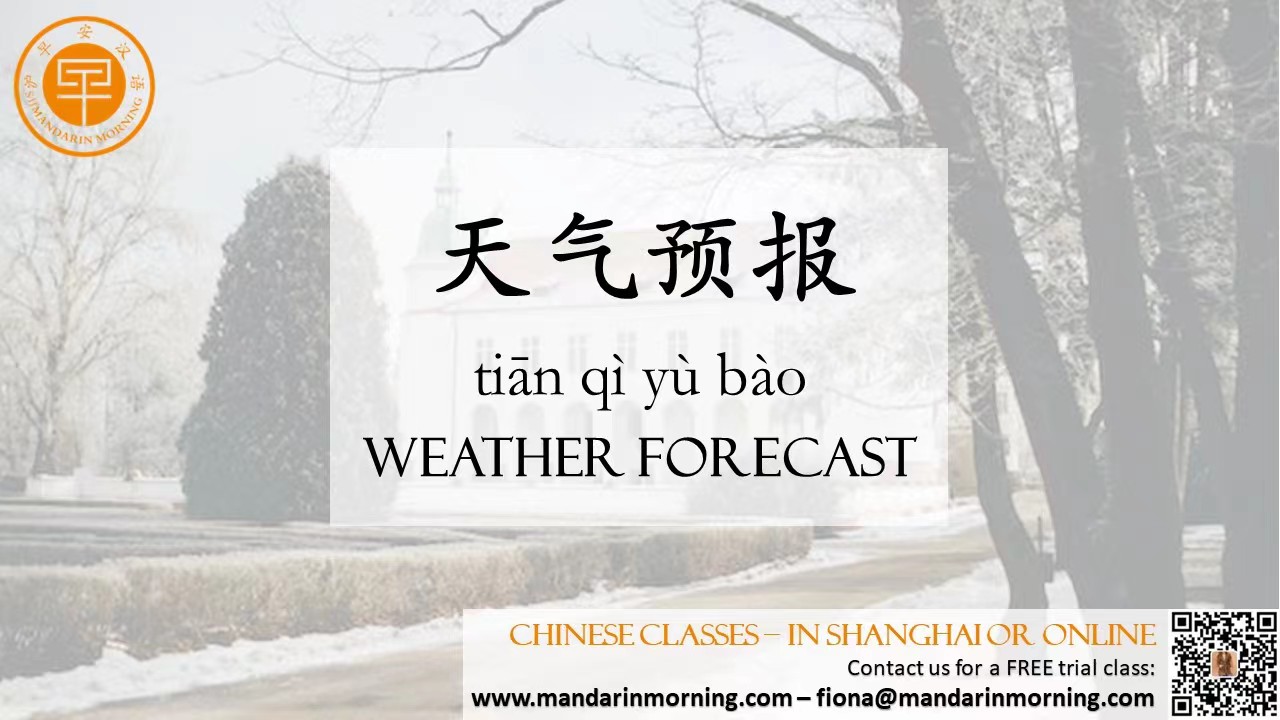| The weather has the power to impact almost every aspect of daily life and shared experiences with various meteorological events are common topics of conversation. Weather, known as 天气 (tiānqì) in Chinese, is a popular subject of discussion. One nice thing about talking about the weather is that there’s always something to say. No matter whether it’s spring (春天 chūntiān), summer (夏天 xiàtiān), fall (秋天 qiūtiān) or winter (冬天 dōngtiān), there’s always something going on outside.  Basic phrases for talking about the weather in Chinese Before we dive in and start exploring specific vocabulary for different types of weather, let’s first learn some basic phrases for talking about the weather in Chinese. First of all, if you prefer to ask someone how the weather is instead of checking the weather report (天气预报 tiānqì yùbào) yourself, use the following phrase: 今天天气怎么样? (Jīntiān tiānqì zěnme yang) - How’s the weather today? If you find yourself being asked this question and don’t want to get into specifics by describing the actual weather conditions, it’s perfectly acceptable to respond with one of the following more general phrases: 今天天气很好。(Jīntiān tiānqì hěn hǎo) - The weather’s great today. 今天天气不错。(Jīntiān tiānqì bùcuò) - The weather’s really nice today. 今天天气不好。(Jīntiān tiānqì bùhǎo) - The weather’s bad today. Another important general topic that’s always relevant when discussing the weather is temperature (温度 wēndù). To ask about temperature, use the following phrase: 今天多少度?(Jīntiān duōshǎo dù?) - What’s the temperature like today? If it’s around 20 degrees today, you can simply respond: 今天20度左右。(Jīntiān 20 dù zuǒyòu) - It’s around 20 degrees today. If you live in the north, you will frequently need to talk about temperatures that fall below zero on the Celsius scale. To do so, simply drop in the phrase 零下 (língxià), which can be translated directly as “below zero.” For example, if it’s -10 degrees Celsius, you can say that it’s 零下10度 (língxià 10 dù; 10 degrees below zero). Celsius or Fahrenheit? It’s important to note that in China, people almost always refer to temperature using degrees Celsius (摄氏度 Shèshìdù) rather than degrees Fahrenheit (华氏度 Huáshìdù). Therefore, when someone responds to your question about temperature in Chinese, they are almost certainly referring to the temperature in degrees Celsius. |